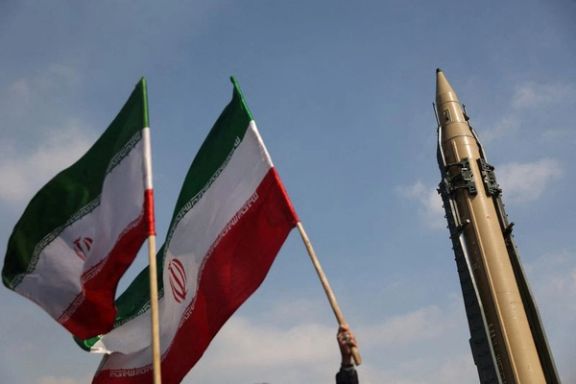After year of painful setbacks, Tehran may be down but not out

Under the shadow of US President Donald Trump’s threats to bomb Iran and after over a year of punishing blows at the hands of Israel, a bruised Islamic Republic remains defiant and seeks a comeback.
“Iran is not giving up,” Dr. Eric Mandel, founder of the Middle East Political Information Network (MEPIN) told Eye for Iran. “Iran's proxies—they may be down—Hezbollah, Hamas, the Houthis—but they’re not stopping.”
As the US positions aircraft in the Indian Ocean capable of striking Iran’s nuclear facilities, some Iranian officials have warned it will be forced to develop a nuclear weapon.
Iran has stepped up its production of fissile material in recent years, and the UN nuclear watchdog says it could accumulate enough enriched uranium for a nuclear weapon in less than a week.
Ali Larijani, a senior adviser to Supreme Leader Ayatollah Ali Khamenei, delivered this message on Monday. “If the US or Israel bomb Iran under the nuclear pretext, Iran will be compelled to move toward producing an atomic bomb,” he said.
Mandel, who regularly briefs members of Congress and national security officials, argued that supporting the Iranian people must become a central pillar of US foreign policy.
“America needs to start saying, we are pro-Iranian, pro-Iranian people, and that it becomes American policy that we want, without boots on the ground, regime change.”
In Congress, the bipartisan bill the Maximum Support Act aims at bolstering dissidents within Iran.
Developed with input from the Foundation for Defense of Democracies (FDD) and the National Union for Democracy in Iran (NUFDI), the draft legislation envisions funding opposition groups in Iran.
“I'm ashamed as an American who talks about American national security interests that we were not in 2022 standing strong with the protests,” said Mandel.
In that year the nationwide protest movement dubbed Woman, Life, Freedom was sparked by the death in morality police custody of Mahsa Jina Amini, a young woman.
'Window of opportunity'
“There is a closing window of opportunity to strike Iran, which is particularly vulnerable because of the successful Israeli attacks against their defensive anti-missile array," Mandel said, who also advocates a US strike on vital Iranian economic infrastructure.
"There is also a decreasing window of opportunity for negotiations even if
the Iranians believe there is a credible military threat."
A potential ceasefire between Russia and Ukraine could allow Moscow to deliver advanced weapons systems to Iran. That includes the S-400 air defense system—an upgrade from the S-300 system Israel disabled in an Oct. 26 strike in response to Iran’s October 2 missile barrage on Israel.
Putting the Iranian S-300s out of action opens the door to Israeli or American strikes, possibly on a larger scale. But Iran could rebuild with Russian help.
“Those missile defenses will not be down for much longer,” said Mandel, “not only for S-400s and even more evolved system, but for the SU-35 jets that the Russians have promised. And again, the Russians owe the Iranians because they've been very helpful to them during their Ukraine war.”
Moscow has publicly tried to dissuade Trump from bombing Iran’s nuclear facilities, warning of “catastrophic consequences.”